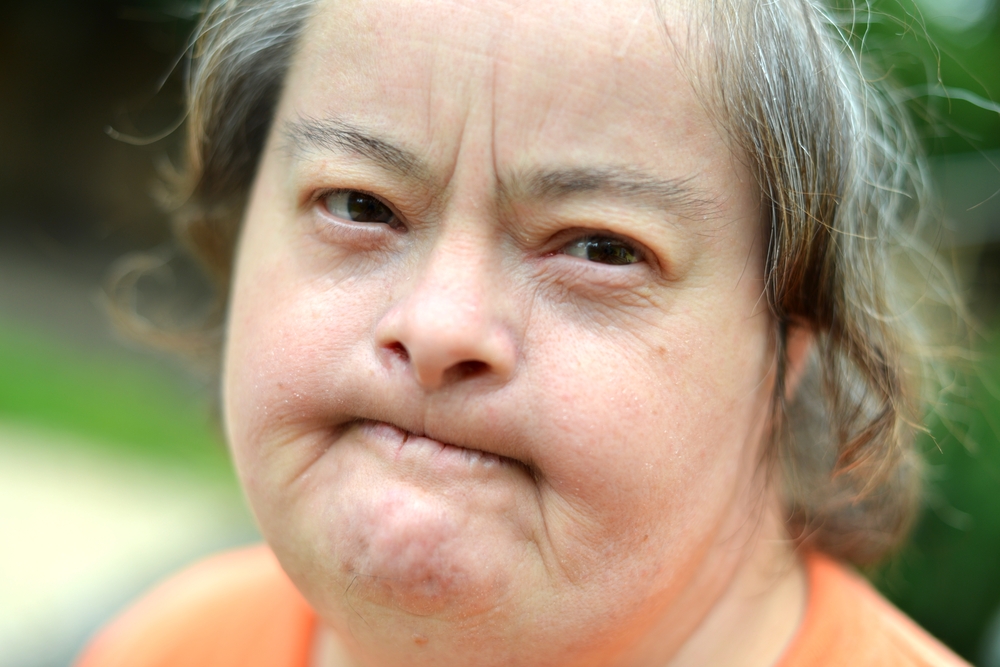Good Clinical Practices Important to Treat Alzheimer’s in People With Down Syndrome
Written by |

More research is essential to improve protocols for diagnosing Alzheimer’s disease in people with Down syndrome, but the ability to identify and care for those patients is enhanced significantly if clinicians are aware of specific circumstances and use a multi-disciplinary treatment strategy.
Those findings are included in a study titled “Challenges faced in managing dementia in Alzheimer’s disease in patients with Down syndrome,” and published in the journal Degenerative Neurological and Neuromuscular Disease. The study highlights the need for more research on managing Alzheimer’s disease in this group of patients, as very few robust clinical studies are available. However, it emphasizes that quality care for people with both Down syndrome and Alzheimer’s is possible if good clinical practice guidelines are followed.
Although people with Down syndrome develop Alzheimer’s more often than the general population, there is not much research focusing on this patient group. In this study, scientists from the Birmingham Learning Disability Service at Birmingham Community Healthcare NHS Foundation Trust in the U.K. placed the spotlight on the particular issues that physicians and caretakers should taken into account when managing Alzheimer’s dementia in people with Down.
Alzheimer’s translates into the same kind of symptoms in people with Down as in others, but the presence of intellectual disability, other diseases, or an inability to communicate symptoms might slow a diagnosis.
Setting a diagnosis frequently is more challenging than in other people, the review noted. Detecting changes in cognition and adaptive skills often is more valuable than plain cognitive assessments, and some researchers have suggested that routine cognitive screening of adults with Down may be helpful in tracking such changes. There is, however, no published research supporting such an approach.
The researchers underscore that, as in other people with Alzheimer’s, it is crucial that physicians rule out the possibility that cognitive decline is caused by other factors, such as physical or psychiatric disease, side effects of medications, or environmental factors. Among the most common contributors to cognitive decline are low levels of thyroid hormones and depression, which are widespread in Down patients.
A physical examination is crucial, the review said, particularly looking for changes in eyesight and hearing, weight, movement abnormalities known as extrapyramidal signs, and low levels of thyroid hormones.
Despite the frequency of Alzheimer’s in people with Down, there is no neuropsychological test battery, endorsed by the international research community, for this patient group. Nevertheless, there are a number of tests that focus on dementia in Down patients, which are commonly used.
Once a diagnosis is set, people with Down and Alzheimer’s should be managed by a multidisciplinary team, including not only physicians, but also mental health professionals, physiotherapists, and pharmacists. Caretakers also can contribute with information and provide a history of symptoms to make a diagnosis easier, the researchers noted.
A major drawback with drug treatment of people with Down is that very little clinical research has explored the effectiveness and safety of Alzheimer’s drugs in this population. The few studies that have been performed often suffer methodological problems, making it difficult to draw conclusions, researchers said.
In 2009 and 2015, the Cochrane Collaboration conducted reviews of antidementia drugs or nutritional supplements for people with Down syndrome. In 2009, the review could identify only one study that met the strict criteria for an anti-dementia drug trial. The study found only a modest trend, suggesting donepezil — a drug belonging to the class of Acetylcholinesterase inhibitors — slowed cognitive decline. By 2015, the review found nine studies, with the only drug showing an effect being simvastatin.
Importantly, the review pointed out that the presence of many other diseases in people with Down syndrome can make drugs used for dementia unsafe, as a disease condition can cause harmful effects of a drug. Interactions with other drugs also may produce dangerous side effects.
The review concluded there is no certain evidence that anti-dementia drugs are effective in slowing cognitive decline in people with Down syndrome. However, there is available evidence that such drugs can improve the quality of life of both patients and their caretakers.
Patients with Down and Alzheimer’s can suffer a range of other symptoms, such as psychotic symptoms, depression, and insomnia, which may need to be treated with drugs. The reviewers highlighted the importance of always starting with the lowest drug dose possible in these conditions, slowly increasing the dose to minimize side effects. In addition, they maintained that antipsychotic drugs should be used for as short a period as possible.
In contrast, studies show that managing depression can improve the quality of life and life expectancy in some patients.





